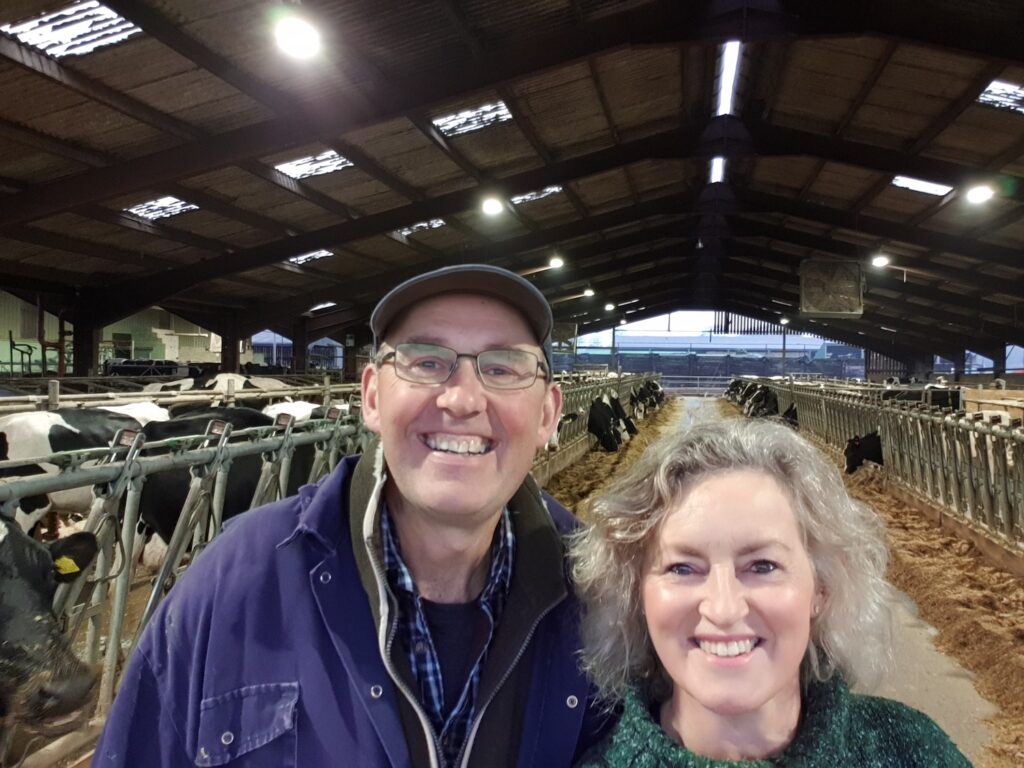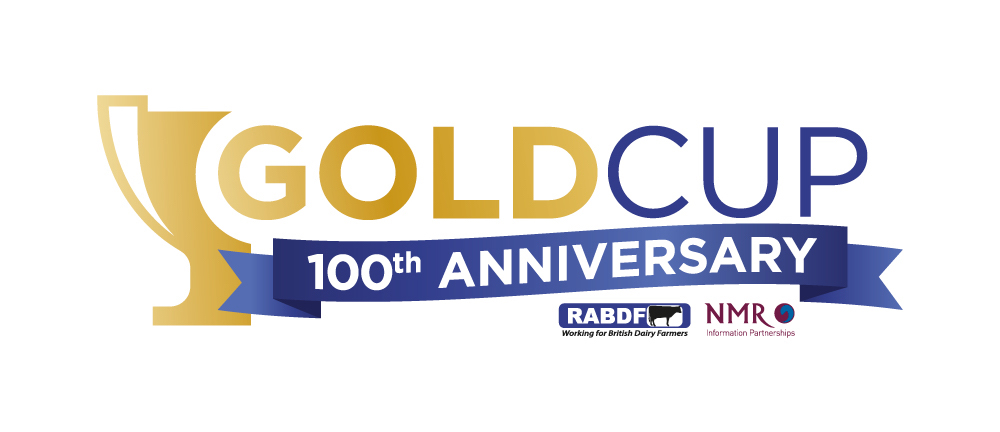Double celebration for one of the UK’s oldest herds
14th December 2020
Kent farm makes it into the final six for prestigious award – just as the herd celebrates its 100th birthday.
John and Rachel Downing (pictured), from Wintersell Farm, Edenbridge, Kent have made it through to the final round of the 2020 NMR/RABDF Gold Cup competition. A fitting finale to a year that, like the competition itself, sees the herd celebrating its 100th birthday.
John’s late grandparents founded the herd in 1919, starting with 30 Friesians and then moving from Wiltshire to Kent to get closer to London’s milk market. “I believe Wintersell is one of the oldest pedigree registered Holstein herds in Britain,” he says.
The herd has met the entry qualifications for the Gold Cup several times in the past, but with herd performance improving John says that he was keen to enter this year. “Our numbers and performance have improved considerably in recent years and we thought that we might be in with a chance – and what better way to mark our herd’s centenary.”
Moving to a single enterprise
John’s parents, John and Sheila, took on the dairy in the 1950s and John became more heavily involved in the farm when he finished college in 1987 and joined the family partnership. Back then, Wintersell was a typical mixed farm. “The business has evolved as we have focused on the cows and the dairy. The final alternative enterprise to be wound down was the Christmas turkeys back in 1999,” he says.
Running a single enterprise has allowed the family to focus on and expand the dairy. The milking herd grew from 400 to 500 head following the construction of a new cubicle building for 240 cows in 2017/18 and has recently grown again to 544 cows plus 250 followers, with some off-farm wintering arranged for young stock.
Based on a 160-hectare unit, the business is heavily reliant on neighbouring farms to grow forage crops and to spread manure.
Cows have been milked three times a day, through the unit’s 36:36 GEA herringbone parlour, for the past five and a half years, with more than 12,100 litres of milk sold per cow per year. That’s just shy of six million litres for the entire herd.
Top quality
Producing a top quality product is foremost in the minds of the team at Wintersell Farm. “We sell our milk to Muller, on a Marks & Spencer contract,” says John. “We were offered one of the first direct supermarket contracts 21 years ago and we have supplied M&S ever since – that’s something we’re very proud of. Achieving this relies on high standards throughout our herd management system.”
The herd calves all year round and is run in four groups – fresh cows, high yielders, heifers and a late lactation group. “All the cows are fed with a TMR throughout the year with a buffer ration offered during the grazing period between April and October.
The herd is managed by Andrew Collins, who has been with the business for the past six years. And he has played a key role in the herd’s progression.
“I have to stress that Andrew’s drive and dedication has put us in a great place to enter this year’s competition and it’s a huge credit to him, and our excellent team, that herd performance has allowed us to reach the final.”
Breeding is key
Breeding has always been important at Wintersell. “We are really proud of the herd. We still classify the cows to monitor how the herd changes, but our emphasis has changed as numbers have grown and our selection criteria are now based around sexed semen from genomic sires with top end PLIs, excellent health traits and sound functional type. We want a herd of cows that are easy to manage and can thrive in a large-herd scenario, and have a long and productive life.”
The herd’s impressive fertility figures, most notably the submission rate (76%) and calving interval (370 days), are down to several factors, not least are low levels of lameness and the use of electronic heat detection ear tags. “It’s all in the detail – low stress, high cow comfort, health and welfare, nutrition, and breeding. They all play a role in our fertility performance.”
With breeding bases covered, John feels able to also focus on improving herd efficiency. “As much as we love milking and managing good cows, Andrew and I get a real buzz from driving the business’ bottom line. There is always some fine-tuning to do and areas of herd management – including health, welfare, fertility and heifer rearing – that can be improved.”
This is just as important as raising the bar on breeding and yield performance when it comes to efficiency. We want to make sure the dairy business is profitable and sustainable for many more decades to come.”
Look out for more articles on the six dairy businesses that are up for the 2020 NMR/RABDF Gold Cup – Farmers Guide will be publishing a profile on each in the run up to Dairy Tech Online in February.


